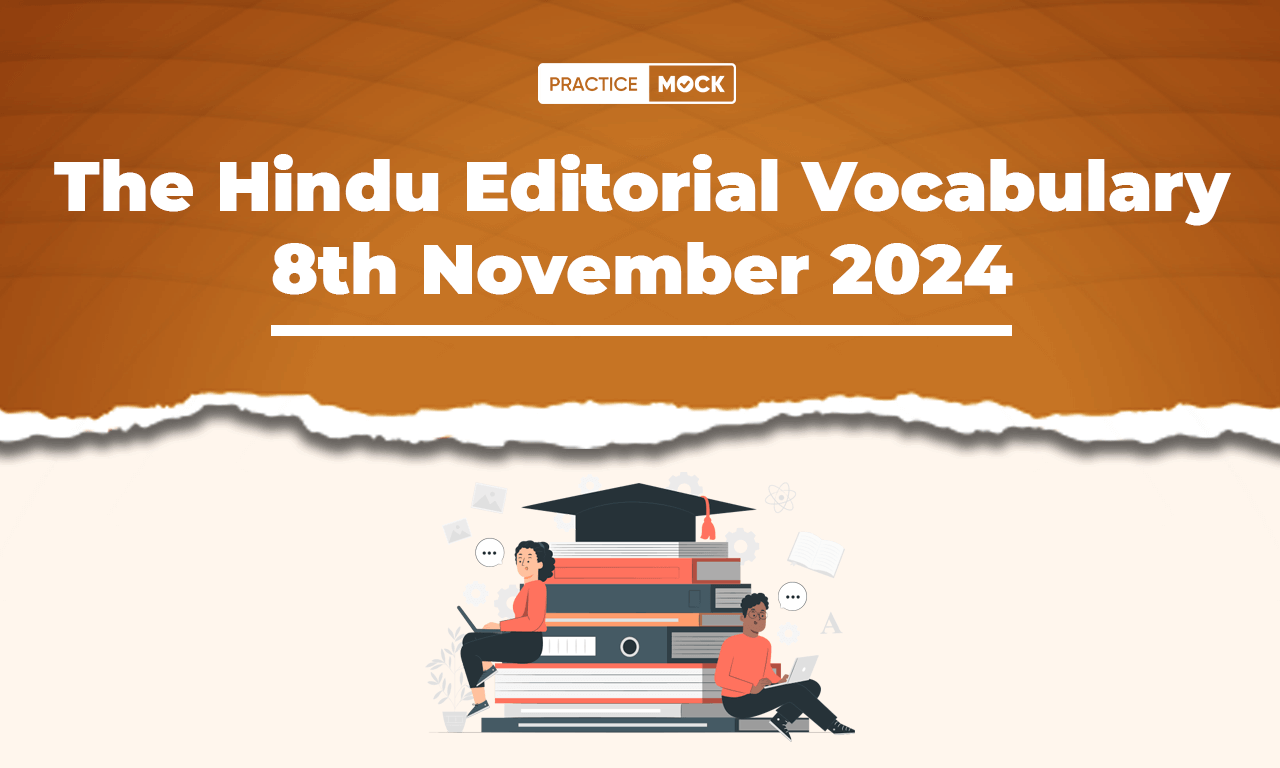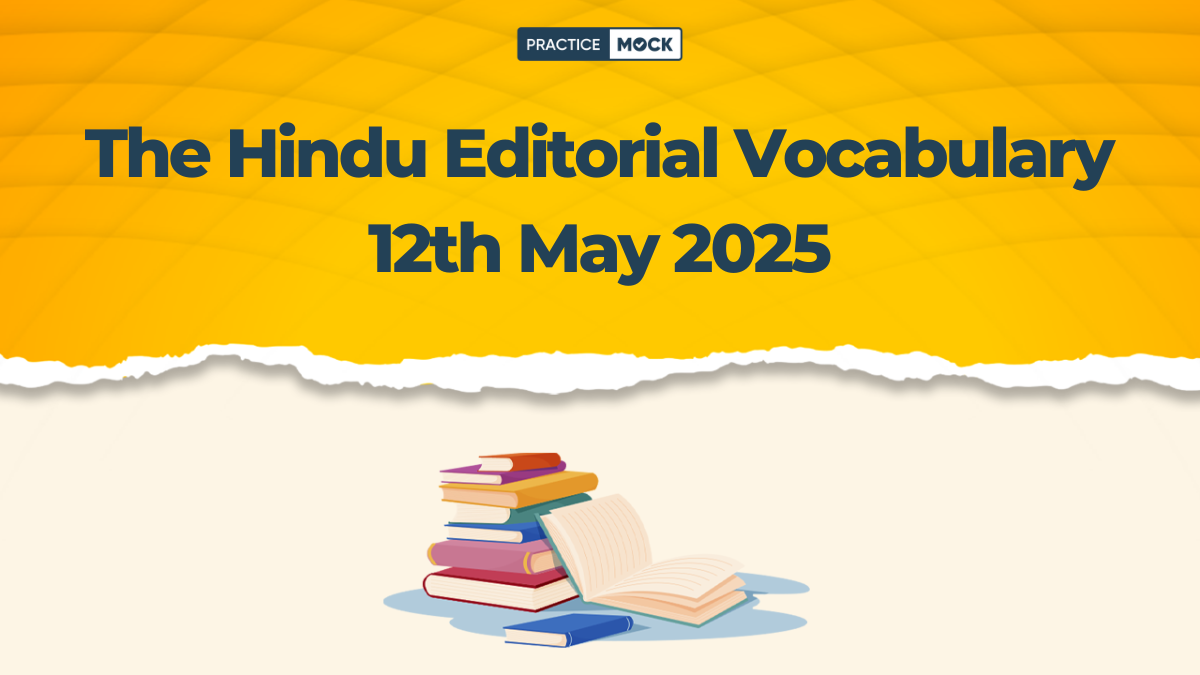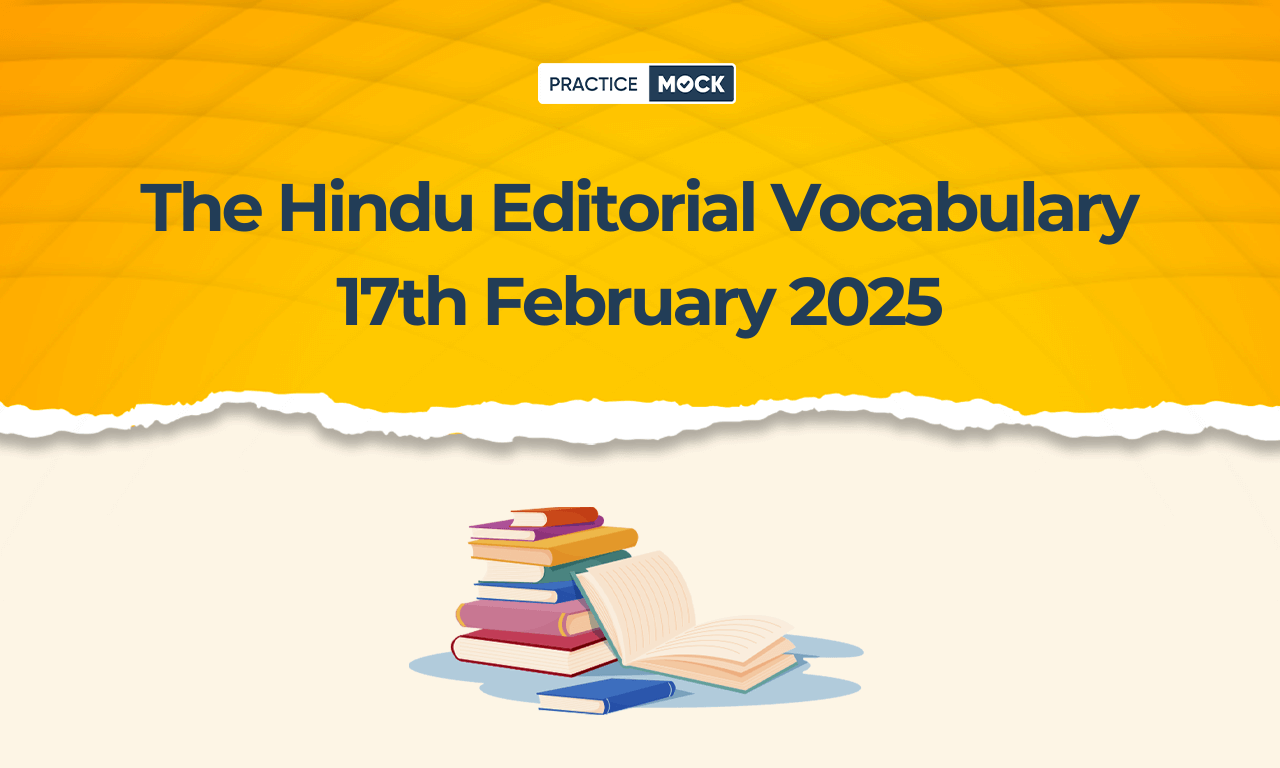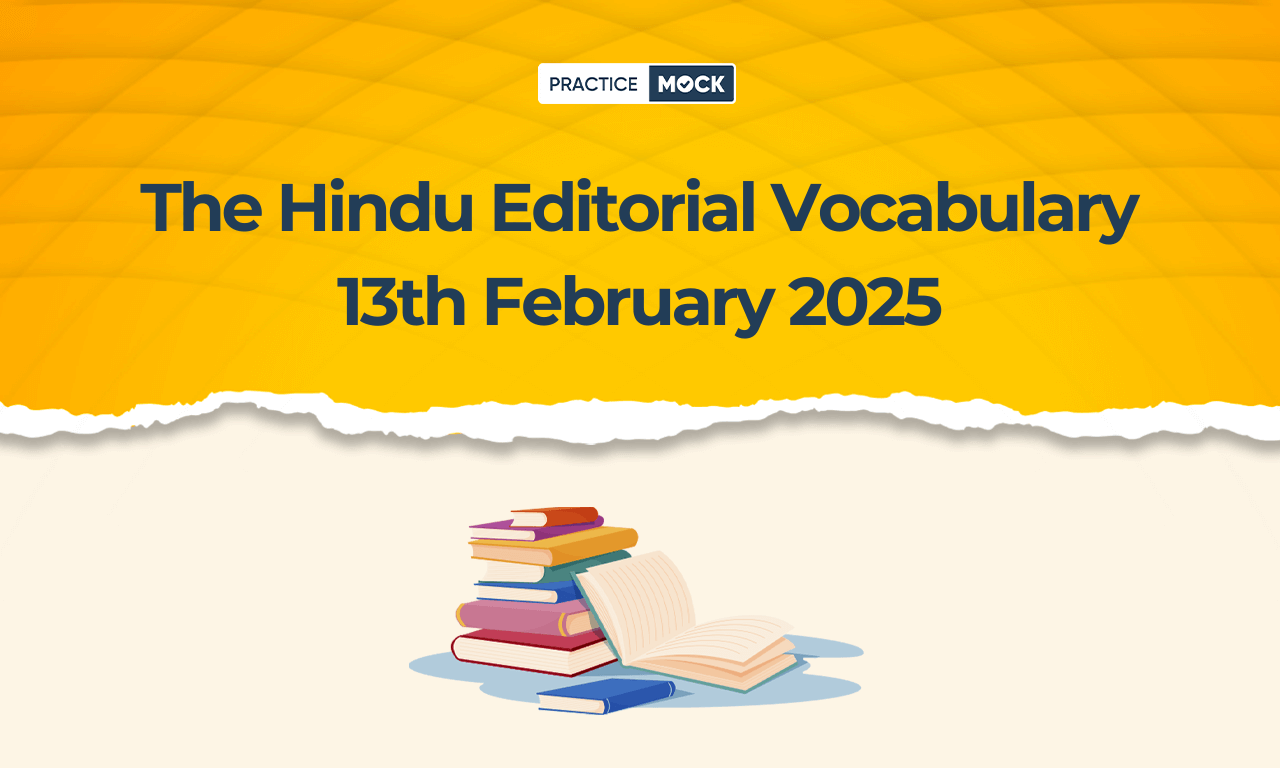The Hindu Editorial Vocabulary 8th November 2024


The Hindu Editorial Vocabulary 8th November 2024 is an effective tool for regularly learning new words and their contextual meanings. Candidates can utilize this free resource daily to improve their vocabulary knowledge, especially those preparing for government exams like the IBPS PO, SBI Clerk, SSC, and Others.
Go ahead and start building your vocabulary power.
All or any: On resources and Supreme Court verdict (formal decision)
The state must have enough bandwidth (capacity) to guard against concentration (accumulation) of resources (assets).
That the Constitution has an economic philosophy rooted in socialist principles, mainly embodied in its Directive Principles (guiding rules) of State Policy, is well understood. However, a question that has often arisen for judicial review (legal examination) concerns how far the state’s obligation to subserve (support) the common good and prevent the concentration of wealth and means of production can be allowed to go against fundamental rights of individuals. The state’s obligation to ensure that the ownership and control of “material resources (tangible assets) of the community are so distributed as to subserve the common good” and to prevent the working of the economic system to the common detriment (harm) is found in Articles 39(b) and (c). The recent verdict (official ruling) of a nine-judge Bench of the Supreme Court (highest judicial authority), holding that not all private resources would fall under the ambit (scope) of ‘material resources’ of the community in Article 39, is notable for its examination of whether the underlying economic thought should be given an expansive (broad) view, or there are limitations on what sort of private property can be the subject of state action. The Court’s majority opinion rejects the expansive view taken in a few precedents in favour of any private resources, including those individual-owned, falling under its ambit. In tune with present-day economic realities, it holds that this directive (instruction) principle cannot be seen through any particular ideological (belief-based) prism (lens), and disapproves of such earlier formulations.
The majority view is that while, theoretically, private resources could be part of the community’s resources, the relevant consideration for the state to acquire or distribute them in pursuit of the common good will depend on “non-exhaustive factors”: the nature of the resources and their characteristics (qualities), whether such acquisition is essential for the community, the scarcity of such resources, and the consequences of their being concentrated in private hands. Land acquisition has always been based on the principle of eminent domain (government’s right to acquire private land), while allocation of natural resources will require fair and transparent processes. On the other hand, nationalisation (transfer to state ownership) of utilities, services, and industries has required constitutional justification through the Directive Principles. The majority is right in holding that the Constitution-makers consciously worded Article 39 in broad terms so that they do not tie down future regimes (governments) to any particular strand of economic thought. However, Justice Sudhanshu Dhulia’s dissent has significance. Highlighting the continuing inequality in society, he has questioned the majority for seeking to limit the scope of the “material resources,” when the better approach would have been to leave it to the wisdom (judgment) of the legislature (lawmaking body).
Hindu Vocab Wordlist 8th November 2024
Upskill yourself and enhance your vocabulary knowledge. Candidates should begin learning new words daily with Hindu Editorial Vocabulary on 8th November 2024.
- Verdict – a decision made by a court.
- Bandwidth – the capacity to handle tasks or demands.
- Concentration – the gathering or accumulation of something.
- Directive – an official or authoritative instruction.
- Judicial – related to courts or judges.
- Subserve – to serve or assist.
- Detriment – harm or damage.
- Ambit – the scope, extent, or bounds of something.
- Expansive – extensive or wide-ranging.
- Regime – a government, especially an authoritarian one.
Hindu Vocab Master 8th November 2024 with Synonyms & Antonyms
Here are the synonyms and antonyms of all the difficult words in Hindu Vocab Master for 8th November 2024:
| Word | Synonyms | Antonyms |
| Verdict | Judgment, Decision, Ruling, Resolution | Mistrial, Indecision, Disagreement, Doubt |
| Bandwidth | Capacity, Range, Scope, Capability | Limitation, Constraint, Narrowness, Inability |
| Concentration | Focus, Accumulation, Gathering, Collection | Dispersion, Distraction, Separation, Distribution |
| Directive | Instruction, Order, Command, Mandate | Suggestion, Request, Option, Freedom |
| Judicial | Legal, Lawful, Juridical, Forensic | Unofficial, Illegal, Extrajudicial, Informal |
| Subserve | Aid, Assist, Support, Facilitate | Hinder, Oppose, Obstruct, Block |
| Detriment | Harm, Damage, Loss, Injury | Benefit, Advantage, Profit, Gain |
| Ambit | Scope, Range, Extent, Boundary | Limitation, Constraint, Restriction, Narrowness |
| Expansive | Extensive, Comprehensive, Wide-ranging, Broad | Limited, Restricted, Narrow, Confined |
| Regime | Government, Administration, Authority, System | Anarchy, Chaos, Disorder, Disorganization |
Recent Posts
High-Scoring Topics in IBPS PO Exam 2025, Check Weightage
Check out high-scoring topics for IBPS PO 2025. Check topic-wise weightage for Quant, Reasoning, English…
180-Day IBPS PO Prep Timeline for Prelims, Mains & Interview
Follow this proven 180-day strategy to prepare for IBPS PO Prelims, Mains, and Interview with…
Most Repeated Floor Based Puzzle Questions for RRB PO 2025, Check How to Solve it Speedily?
Here we are providing the Most Repeated Floor Based Puzzle Questions for RRB PO 2025…
RRB ALP Vacancy 2025-26 Out for 9970 Posts, Notification Expected Soon
The RRB has released the RRB ALP Vacancy 2025-26 for 9970 Posts. This blog has…
SSC CGL Previous Year Question Paper in Form of Free Quiz and PDF
This blog has provided the SSC CGL Previous Year Question Paper in the form of…
500 SSC CGL Repetitive One-Word Substitutions
In this blog, we have provided the 500 SSC CGL Repetitive One-Word Substitutions PDF to…


